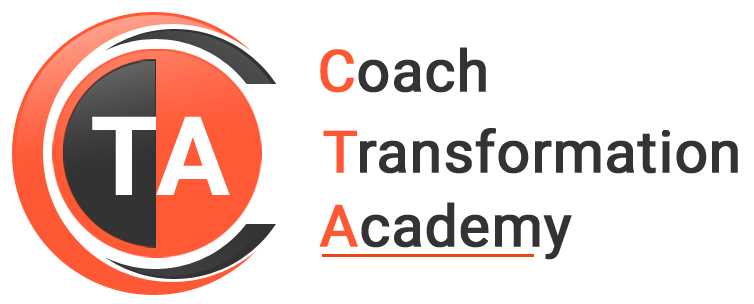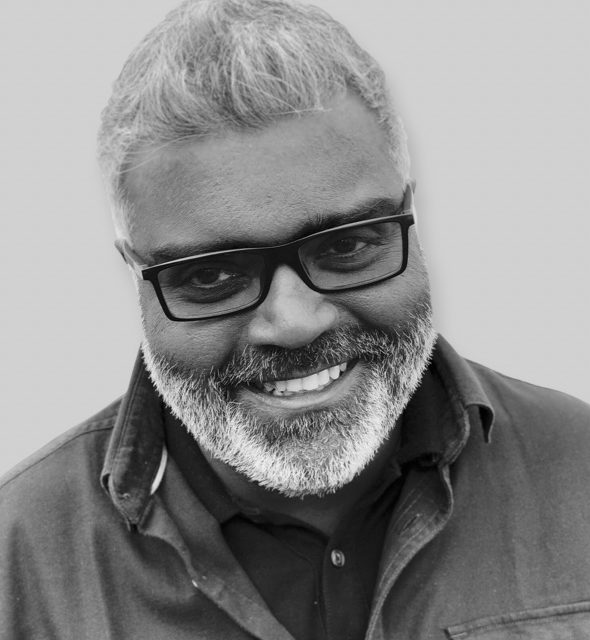
Author of Simplifying Coaching
I could say that I am a human who facilitates other people’s thinking. I am a business owner. A Mother. A friend. A volunteer. A Master Coach with over 11000 hours experience. Author of Simplifying Coaching (Open University Press https://amzn.to/3cRFOuk) All of these are true and each will impact how we start a conversation. With some definitions you might assign me power which I do not deserve.
Right now my learning journey is all about power and partnership – it’s an interesting ride and I’ll be sharing and listening through blog posts as I go… I’m interested in how we hold presence in coaching and work in partnership in spite of power differences. In demand as a coach, supervisor, mentor coach and keynote speaker, my passion is to deliver and develop deep and simple coaching across the world. That means supporting coaches to do less!
Recent encounters include:
- Speaker at ICF Global Conference, Prague, UK ICF Conference, London and at ICF Chapters across the world
- Keynote speaker at conferences including South West Councils Coaching Conference
- Coaching CPD for London Leadership Academy, NHS Midlands Leadership Academy, GAIN, Luton Borough Council, Church of England and Wales
- Executive Coaching – charity sector, public sector and church – board level
Much of my learning now comes from what I notice in the room and observe in hundreds of 1-1 conversations every year
- Master Certified Coach (MCC Accreditation from International Coach Federation) working with individuals and organisations – with well over 11000 hours coaching experience – one of the first coaches to be assessed under the new MCC criteria that came in 2012
- Energetic and inspirational trainer and speaker
- Accredited Coaching Supervisor
- 30 years experience of executive and career coaching
- Experienced and skilled facilitator
- Developed STOKeRS and the Coaching Container
Context:
- We work too hard. We aren’t coaching when we are doing more thinking than the client. Coaching is about us facilitating their thinking.
- We can’t guarantee transformation happens in a conversation. And there are lots of things that we can stop doing that make it more likely to happen.
- Drawing from what we learn about the transformation from science and the ICF Core Competencies, Claire will do a live coaching demonstration with one of us and share some simple tweaks that will make transformation more likely to happen in those you coach.
- You’ll be able to put it into practice straight away.
Keynotes
I’m not a Guru.
- In coaching, you don’t turn into somebody who’s sorted, helping somebody who’s not sorted.
- We’re all broken, and none of us are broken.
- There’s a complexity to what we bring to the conversation.
- Coaching is a conversation between two people about one of us. That’s what makes coaching different from others.
- A coach’s job is to enable the coachee to feel heard and gain new insights into their own stuff. That’s transformation.
Transformation is when people get new insights into their own stuff.
- The coachee goes away with knowing something that they didn’t know before; or feeling something that they didn’t feel before, which will make a difference to what they do or think.
- A lot of coaching can easily become transactional. You can know when you hear from somebody whether they’re going to do something about it.
- When it’s transformational, it’s about the moment in which they now know they can’t unknow and everything’s changed forever.
In science, transformation happens in a container: Mastery in Coaching
- For instance, to bake a cake, you put all the ingredients into the baking container. You can’t unmake a cake.
- So, when you put a conversation in the container, it’s more likely to be transformational.
- The boundary of a container – good start, good middle, and good end.
- In some conversations, there’s a little boundary leading the conversation to go all over the place before getting to the heart of the matter.
- If you’re an ICF Coach, you might be aware of the competency “Establishing and Maintaining the Agreement” – it means you need to work out what you’re doing and end the work in partnership.
- When you put a container around the conversation, it’s more likely to be transformational. This simply means that you don’t start doing the work in any conversation until you’re clear on three things:
- What are we doing today in this conversation?
- How are we going to do that today?
- How will we know we’ve done it?
- Once you’ve got a boundary around the conversation, the conversation is more likely to give the person a new insight.
We’re looking in the wrong place.
- When you’re thinking about somebody’s competency as a coach or your own competency as a coach, you watch the coach and get impressed by what you do.
- Actually, great coaching is about whether it makes the other person think.
- Does it facilitate the other person (who’s being coached) to think?
- In many of the coaching conversations Claire observed, transformations happened. However, the coach didn’t see it. And the coach asked another question.
- In such situations, the person didn’t get the insight that might have happened as it was missed due to moving too quickly.
A 10-minute coaching conversation
- If you like what I do and you think it’s useful, please don’t go on “I need to do that now.” You’re all wise people who have brought great stuff to the table at this point in your career. What I hope is you get some insight that you can slightly tweak in your coaching that will make your conversations more likely to be transformational.
I invite people to think.
- In coaching, we try to resolve things and move things forward using words. Often there are things created by words.
- You can invite the coachee to think without saying a lot of words. You think quickly than speak. And can turn this into a visualization exercise.
Don’t interrupt people’s thinking.
- We interrupt their thinking all the time.
- When you’re paid to coach, you’re not paid on the number of words you speak. You’re paid for the processing they do when they’re in your good company.
- Using time makes the difference to the quality of the conversation. Coaching conversations get out of control when the thing we’re talking about is too big.
- Commonly, this process is described as Contracting.
When I wrote all about Contracting.
- You need to frame the contract at the beginning by making the work the right size. It doesn’t matter if the coachee says, “I don’t know”. Because now we know that we don’t know what we’re doing.
- That’s a good thing. We can do work when we don’t know what we’re doing.
Coaching as a Plane Journey
- The thinker (coachee) can talk about whatever they, but a coach’s job is not to start diving into the work until both work together on what to work on today and not talk about anything else.
- Coaches often accidentally lead by asking a question about something that they’ve said before being clear on what is the work for today.
- Coaching someone one time does not mean it will work every time. We need to co-create every single time.
Three questions that help us
- Use the time after we’ve begun the conversation. For instance, how will you know in eight minutes that we’ve done that?
- The words like ‘extra’, ‘here’, and ‘now’ help to stay in the conversation. For instance, what’s your question for today?
- Coaching is massively easier when somebody is moving. And the coach’s only role is to keep the coachee inflow in their thinking to get where they need to be by the end of the conversation.
Keep these words in your toolkit: which bit and today.
- We need to be clear that that’s not coaching. Unless you tell them that it’s not coaching, they’ll think that’s coaching.
- They’ll think you’re just having a chat, and they’re not going to do the work. One of the issues about coaching is future-focused and optimistic.
- Fishtail is the pre-conversation – it’s something the coach needs to do before starting the work.
People come to us with all their stuff.
- Checking in with the coachee how they’re moving throughout the conversation:
- What insights do you have?
- Is this useful?
Coaches work too hard when we work too hard.
- The people we’re coaching work less hard.
- We need to do less work.
- Simplifying coaching is not simple. It’s a lifetime journey. It’s so effective as the coachee knows that they did the good work themselves. So say less and work more.
- We’re only human beings. If we think we’re doing something special, we are disempowering the person we’re working with.
- Coaching is very special yet equally very simple.
The Dangers of Coaching
- We might think that we see a whole lot of things that we either do or don’t.
- Never know first, never know better, never think you know. – Nigel Willings.
- If you think you know something, you’ll accidentally start leading the conversation which will not be so useful.
- There’s something about saying what we see before we’re diagnosed what the problem is.
Notice. Don’t diagnose.
- Coaching is simply to notice and to say what we see but not diagnose.
- If you’ve come from a diagnostic profession, you will be pretty hardwired to make sense of what somebody else is saying to you. In coaching, we need to suspend that and get the coachee to do the work.
- Coaches have a responsibility to name it and notice it but to make it safe. Sometimes closed questions are kept intentionally to keep the coachee safe.
- Coaches need to get over it to let go of the control. While you’re controlling it, they’re following you. And while following you, they’re not getting the insights.
- Never be the one to break the silence. Watch their eyes. If they’re busy, don’t speak.
The Magic in our Pocket
- The courage of being vulnerable in coaching is when we know that we don’t have any magic in our pocket.
- When we show up as human beings and leave the magic behind, that’s when the magic starts to happen. It comes from them.
- Let the coaching tools come last. When you’re coaching, the coachee’s question is always better than yours. Let them go first. Your job is to use their questions and give them back to them.
- If you spend your whole coaching conversation with your head in your toolkit of questions and techniques, you’re not listening. Get them to do the work.
Nuggets from Claire Pedrick
- We, as coaches, need to be looking at them (coachee) rather than looking at us. That’s where we’re going to see transformation happen.
- As coaches, we dive in before we’re clear about the work we’re doing.
- One of the risks of coaching: If you’re great at making the coaching conversation feel spacious, you’ve no idea how long you’ve got. You’re opening up, and suddenly you go, “it’s time to finish off”.
- We are human beings facilitating the thinking of another human being.
- When the coachee has a quick win and gets a new insight, they begin to see that the magic is inside them.
“If you spend your whole coaching conversation with your head in your toolkit of questions and techniques, you’re not listening. Get them to do the work.” – Claire Pedrick
If you missed or want to rewatch our webinar with Claire Pedrick on “Simplifying Coaching”, catch up now: https://youtu.be/hdgp6Q12iL4
A big shoutout to Claire Pedrick for sharing how to simplify coaching! ❤️
Don’t miss out on this one. Stay tuned for the next episode!




